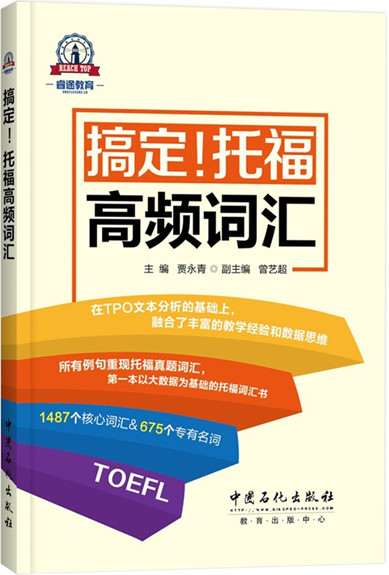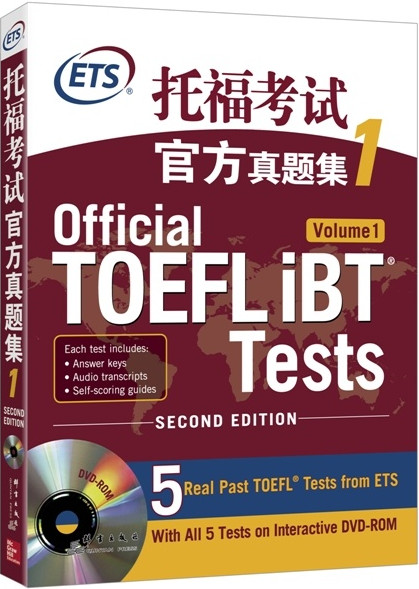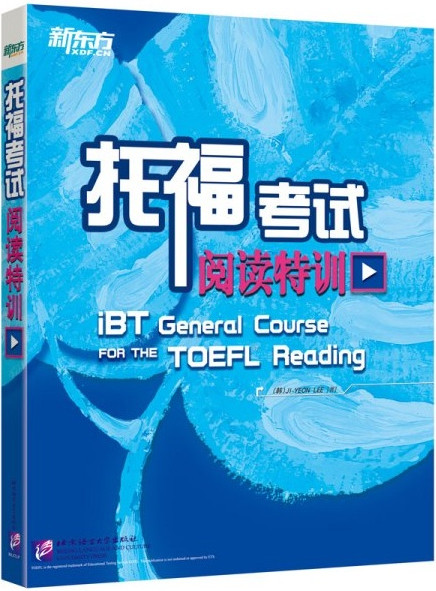2017年9月16日托福阅读真题回忆
Passage One
学科分类:地质类
题目:the formation of earth atmosphere
内容回忆:
1.地球形成的时候是H和HE 为什么和现在不同?
2.hold gas的主要原因是gravity和escape velocity,所以那两种很轻的气体就跑了。
3.火山爆发导致二氧化碳出现,其溶于水作为降雨进入到海洋以及是有机生物体的碳元素的来源。
4.氮气因为很少溶于水所以在大气中含量较高,是现在大气的主要气体。
词汇题:
1. predominantly - mainly
2. Augment - supplement
3. account for - explanation
4. constitutes - makes up
Passage Two
学科分类:历史
题目:Documenting the Incas
原文:
Documenting the Incas
The Incans ruled a vast empire in western South America when the Spaniards encountered them in the sixteenth century. Although the Incas had no writing system of their own, historical information about Incas is available to researchers because early Spaniards wrote documents about them. However, there are drawbacks to use the written record. First, the Spanish writers were describing activities and institutions that were very different from their own, but they often described Inca culture in terms of their own society. As an example, consider the list of kings given by the Incas. As presented in the historical chronology, Spanish sources indicate there were thirteen kings who ruled sequentially. The names were given to them by Inca informants. However, one school of thought in Inca studies suggests that the names were not actual people, but, rather, titles filled by different individuals. Thus, the number of actual kings may have been fewer, and several titles may have been filled at the same time. The early Spanish writers, being unfamiliar with such a system of titles, simply translated it into something they were familiar with (a succession of kings). Given that the Inca empire expanded only during the time of the last four kings, or as a result of the actions of the individuals in those four positions, this question is not deemed significant for an understanding of the Incas. But the example shows that biases and inaccuracies may have been introduced inadvertently from the very beginning of the written Spanish reports about the Incas. Moreover, early writers often copied information from each other---so misinformation was likely to be passed on and accepted as true by later scholars.
Second, both Spanish writers and Incan informants sometimes had motives for being deliberately deceitful. For example, in an effort to gain status in the Spaniards' eyes, Incas might say that they formerly had been more important in the Inca empire than they actually were. Spanish officials as well were occasionally untruthful when it served their purposes. For example, Spaniards might deliberately underreport the productivity of a region under their authority so they could sell the additional products and keep the money, rather than hand it over to the Spanish Crown.
Third, it should be noted that the Spaniards' main sources of information were the Incas themselves, often members of the Inca ruling class. Therefore, what was recorded was the Incas' point of view about their own history and empire. Some modern authorities question whether the history of Incas happened as they said it did. Although some of their history is certainly more myth than truth, many, if not most, scholars agree that the history of the last four Inca kings is probably accurate. The same is true of other things told to the Spanish writers: the more recently an event is said to have occurred, the more likely it is to have actually happened.
A fourth problem relates to the nature of the Inca conquests of the other people in the Americas before the Spanish arrived and how accurate the accounts of those conquests are---whether related by the Spaniards or by the Incas on whom they relied. It was certainly in the Inca's interest to describe themselves as invincible and just. However, lacking accounts by conquered people about their interactions with the Incas, it is unknown how much of the information of the Inca conquest as related by the ruling class is factual.
Finally, there is a certain vagueness in the historical record regarding places and names. Many Spanish writers listed places they had visited within the empire, including both provinces and towns. However, other writers traveling along the same routes sometimes recounted different lists of places. In addition, it is difficult to identify the exact locations of towns and other geographic points of reference because of the widespread movements of people over the past five centuries.
For all these reasons, the historical record must be carefully evaluated to determine whether it is accurate and to verify the locations of past events. One approach is to cross-check information from a number of authors. Another approach is to conduct archaeological research. Regardless of the problems, historical documents review some important information about the Incas.
Paragraph 1
The Incans ruled a vast empire in western South America when the Spaniards encountered them in the sixteenth century. Although the Incas had no writing system of their own, historical information about Incas is available to researchers because early Spaniards wrote documents about them. However, there are drawbacks to use the written record. First, the Spanish writers were describing activities and institutions 【that were very different from their own】, but they often described Inca culture in terms of their own society. As an example, consider the list of kings given by the Incas. As presented in the historical chronology, Spanish sources indicate there were thirteen kings who ruled sequentially. The names were given to them by Inca informants. However, one school of thought in Inca studies suggests that the names were not actual people, but, rather, titles filled by different individuals. Thus, the number of actual kings may have been fewer, and several titles may have been filled at the same time. The early Spanish writers, being unfamiliar with such a system of titles, simply translated it into something they were familiar with (a succession of kings). Given that the Inca empire expanded only during the time of the last four kings, or as a result of the actions of the individuals in those four positions, this question is not deemed significant for an understanding of the Incas. But the example shows that biases and inaccuracies may have been introduced inadvertently from the very beginning of the written Spanish reports about the Incas. Moreover, early writers often copied information from each other---so misinformation was likely to be passed on and accepted as true by later scholars.
1. The word "vast" in the passage is closest in meaning to
¡ ancient
¡ wealthy
¡ powerful
¡ extensive
2. The word "drawbacks" in the passage is closest in meaning to
¡ requirements
¡ techniques
¡ exceptions
¡ disadvantages
3. The word " sequentially " in the passage is closest in meaning to
¡ Secretly
¡ one after another
¡ formerly
¡ in partnership with each other
4. According to paragraph 1, why does the written record about the Incan civilization depend on the reports of Spaniards?
¡ The Incas destroyed their written records to prevent the Spaniards from benefiting from them.
¡ The Incas did not have a writing system.
¡ The Spaniards destroyed all records written by the Incas.
¡ Incan records were written on materials that do not preserve well.
5. According to paragraph 1, sixteenth century's Spaniards may have been incorrect about which of the following aspects of the Incan empire
¡ its size during the reigns of the last four kings
¡ the total number of Incan kings
¡ the kinds of power that Incan kings were able to exercise
¡ the extent to which Incan kings were able to control activities within their empire
6. Which of the following can be inferred from paragraph 1 about the Incan system of rulers?
¡ It was first introduced when the expansion of the Incan empire began.
¡ It required that multi-rulers share a particular title at the same time.
¡ It was sometimes confusing to the Incan informants of the Spaniards.
¡ It was unlike the system used in sixteenth century Spain.
Paragraph 2
Second, both Spanish writers and Incan informants sometimes had motives for being deliberately deceitful. For example, in an effort to gain status in the Spaniards' eyes, Incas might say that they formerly had been more important in the Inca empire than they actually were. Spanish officials as well were occasionally untruthful when it served their purposes. For example, Spaniards might deliberately underreport the productivity of a region under their authority so they could sell the additional products and keep the money, rather than hand it over to the Spanish Crown.
7. Which of the following is mentioned in paragraph 2 as a possible motive for deliberate inaccuracy in official Spanish reports of the Incas?
¡ The desire of some Spanish officials to appear more important than they really were
¡ The need to please Spanish rulers by making productivity seem greater than it really was
¡ The desire of the Incas to make their empire seem more successful than it really was
¡ The desire of most Spanish officials to enrich themselves
Paragraph 3
Third, it should be noted that the Spaniards' main sources of information were the Incas themselves, often members of the Inca ruling class. Therefore, what was recorded was the Incas' point of view about their own history and empire. Some modern authorities question whether the history of Incas happened as they said it did. Although some of their history is certainly more myth than truth, many, if not most, scholars agree that the history of the last four Inca kings is probably accurate. The same is true of other things told to the Spanish writers: the more recently an event is said to have occurred, the more likely it is to have actually happened.
8. Why does the author indicate that the Spaniards' main sources of information were the Incas themselves
¡ To argue that the Spaniards made great efforts to obtain the most information
¡ To explain why some scholars think that the documentary history of the Incan empire may not be correct
¡ To question the idea that more recent events in the Incan empire are more likely to be accurate than are more ancient ones
¡ To explain how scholars are able to determine that the history of the last
four Incan kings is probably correct
Paragraph 4
A fourth problem relates to the nature of the Inca conquests of the other people in the Americas before the Spanish arrived and how accurate the accounts of those conquests are---whether related by the Spaniards or by the Incas on whom they relied. It was certainly in the Inca's interest to describe themselves as invincible and just. However, lacking accounts by conquered people about their interactions with the Incas, it is unknown how much of the information of the Inca conquest as related by the ruling class is factual.
9. The word "just" in the passage is closest in meaning to
¡ fair
¡ strong
¡ independent
¡ wise
10. According to paragraph 4, why is there some doubt whether Spanish accounts of the Incan conquests of other people are accurate?
¡ The Spaniards included some information about which Incan informants disagreed.
¡ The conquered people's tales of the Incan conquests sometimes differed from the Inca's tales of them
¡ The Spanish accounts of the Incan conquest were based on information from Incan informants only.
¡ Some archaeological evidence does not support the Spanish accounts.
Paragraph 5
Finally, there is a certain vagueness in the historical record regarding places and names. Many Spanish writers listed places they had visited within the empire, including both provinces and towns. However, other writers traveling along the same routes sometimes recounted different lists of places. In addition, it is difficult to identify the exact locations of towns and other geographic points of reference because of the widespread movements of people over the past five centuries.
11. According to paragraph 5, what is a reason that place names in the historical record are sometimes vague?
¡ When people moved they often gave new provinces and towns the same names as places they came from.
¡ Different writers in historical record listed different names for places along the same routes.
¡ Most writers of the historical record traveled little within the empire.
¡ The names of provinces and towns often did not reflect geographic points
of reference.
Paragraph 6
For all these reasons, the historical record must be carefully evaluated to determine whether it is accurate and to verify the locations of past events. One approach is to cross-check information from a number of authors. Another approach is to conduct archaeological research. Regardless of the problems, historical documents review some important information about the Incas.
12. Which of the following is mentioned in paragraph 6 as a method for verifying accuracy of an account of a past event?
¡ Comparing accounts of the event given by different writers
¡ Investigating whether a particular author's accounts of other events have proved accurate
¡ Investigating whether the author of an account actually presented as the event described.
¡ Determining whether the author of an account was able to crosscheck information with multiple informants
Paragraph 1
The Incans ruled a vast empire in western South America when the Spaniards encountered them in the sixteenth century. ■ Although the Incas had no writing system of their own, historical information about Incas is available to researchers because early Spaniards wrote documents about them. ■ However, there are drawbacks to use the written record. ■ First, the Spanish writers were describing activities and institutions that were very different from their own, but they often described Inca culture in terms of their own society. ■ As an example, consider the list of kings given by the Incas. As presented in the historical chronology, Spanish sources indicate there were thirteen kings who ruled sequentially. The names were given to them by Inca informants. However, one school of thought in Inca studies suggests that the names were not actual people, but, rather, titles filled by different individuals. Thus, the number of actual kings may have been fewer, and several titles may have been filled at the same time. The early Spanish writers, being unfamiliar with such a system of titles, simply translated it into something they were familiar with (a succession of kings). Given that the Inca empire expanded only during the time of the last four kings, or as a result of the actions of the individuals in those four positions, this question is not deemed significant for an understanding of the Incas. But the example shows that biases and inaccuracies may have been introduced inadvertently from the very beginning of the written Spanish reports about the Incas. Moreover, early writers often copied information from each other---so misinformation was likely to be passed on and accepted as true by later scholars.
13. Look at the four squares [■ ] that indicate where the following sentence can be added to the passage.
Official accounts, legal papers, and letters written during that period provide a wealth of information about the Incan empire and the Incas' way of life.
Where would the sentence best fit?
14. Directions: An introductory sentence for a brief summary of the passage is provided below. Complete the summary by selecting the THREE answer choices that express the most important ideas in the passage. Some answer choices do not belong in the summary because they express ideas that are not presented in the passage or are minor ideas in the passage. This question is worth 2 points.
The accuracy of the historical record concerning the Incas is problematic.
1. Numerous aspects of Incan life were recorded in the sixteenth century but many historical documents created at this time were lost or destroyed.
2. Many Spaniards were interested primarily in the expansion of the Incan empire and therefore ignored other periods of Incan history.
3. The fact 【that the Incan informants remained sources of information about themselves 】as well as inconsistencies in place names call the sound aspects of the accounts into question.
4. Descriptions of Incan society may often be influenced by the cultural biases of people writing about Incas.
5. Incorrect information may sometimes have been knowingly included in historical records because it was advantageous to the person including such information.
6. The movement of people due to the Incan conquest and the settlement of the Spanish has caused much confusion about place names in the historical record.
Passage Three
学科分类:生物
题目:The most common bird
内容回忆:
1.讲了一种红嘴鸟在非洲是很常见的。
2.这种鸟feed on grass,而grass是seasonal 出现和消失的。
3.这种鸟为了避免食物短缺,就要migrate。
4,在grass开始长的时候这种鸟又迁移回来。
5.现在Africa种了很多cereals,这种鸟就是一种pest,每年会damage很多cereals的产量。
词汇题:
1. evershifting
2. inhospitable - unfavorable
3. subsequent - continually
4. over estimate - may be higher
- 06-12·2018年6月10日托福阅读真题回忆(网友版)
- 06-12·2018年6月10日托福阅读真题回忆
- 06-04·2018年6月2日托福阅读考题回忆
- 05-28·2018年5月26日托福阅读真题回忆
- 05-22·2018年5月19日托福考试阅读真题回忆
- 06-122018年6月10日托福阅读真题回忆
- 06-042018年6月2日托福阅读考题回忆
- 05-282018年5月26日托福阅读真题回忆
- 05-222018年5月19日托福考试阅读真题回忆
- 05-212018年5月19日托福阅读考试真题回忆
编辑推荐
- 模拟试题
- 历年真题





